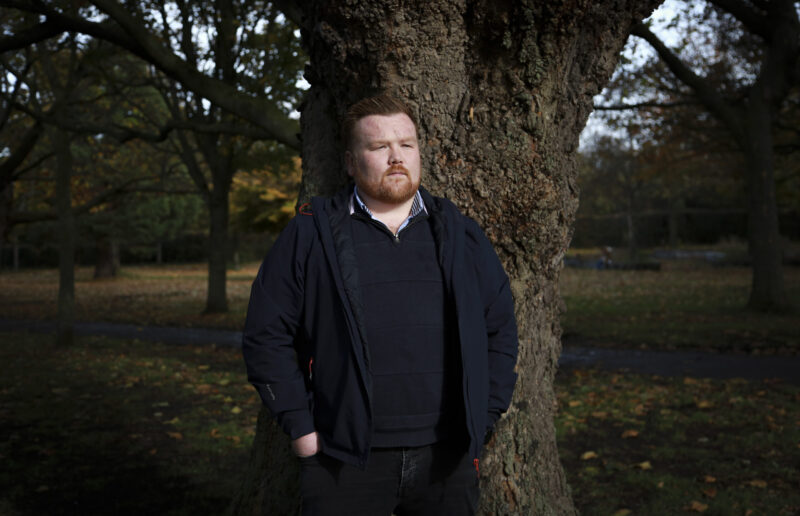I did not realise I had a mental health illness before 2009. This was probably one of the hardest of times of my life. I hit a crisis when I continually kept getting flashbacks from trauma I experienced as a child and I simply did not know how to cope. I broke down crying. I was angry and upset and I did not know how to deal with how I felt. I just knew that I wanted to escape those feelings. The hurt. The anger. The loss. The pain.
So, I climbed a bridge in London, convinced I wanted to die.
At that moment I was determined to end it all and to escape the reality I was living in.
I got into a four-hour stand-off with the police and was ultimately talked down by Major Howard Russell, who at the time was the Deputy Director for Social Services for the Salvation Army in the UK and Ireland. Howard helped me off the streets when I was a kid, sleeping rough in Dublin. He has been the only consistent person in my life for the last 20 years.
I did not realise I had a mental health illness before 2009. This was probably one of the hardest of times of my life
When I was on the bridge, he said one thing that stuck in my mind and possibly saved my life.
“I love you.”
It was at that moment that I did not want to feel the way I felt. As if, in that moment, all the hurt and pain had gone. I had experienced something in my life which I’d never had before; someone actually cared about me.
Following this, I was sectioned under the Mental Health Act and, while I was in hospital, I received amazing treatment and managed to get some stability. Unfortunately, chaos followed as the British Transport Police charged me and then Transport for London took me to court to recover their loss of earnings. Eventually it was decided that it was not in the public’s interest to pursue the case.
When I was released from hospital, I tried hard to reintegrate myself into society. However, my suicide attempt had made it into the local and national press. Nobody would give me a job so I had no income and could not support myself financially which led to my mental health deteriorating and having suicidal thoughts again.
As soon as I made my second suicide attempt, I started crying because at that moment I realised I did not want to die. That moment in a park became the catalyst for me to try and pursue some stability in my life. I realised then, more than ever before, that I wanted to live, so I proactively pursued and linked in with my Community Mental Health Team. I was diagnosed with Bi-Polar and CPTSD.
From that moment I did not want to give up. I wanted to fight it and challenge the stigma that exists surrounding severe and enduring mental health illnesses.
At times I still struggle with how I feel. But recently I have become a student in order to gain a qualification to continue with my career in mental health. Previously I worked as mental health peer support working in a Psychiatric intensive care unit in Northern Ireland, and I am currently a national adviser working in London with the Royal College of Psychiatrists in the National Collaborating Centre for mental health.
From that moment I did not want to give up. I wanted to fight it and challenge the stigma that exists surrounding severe and enduring mental health illnesses
I was excited about returning to education, but the transition has not been easy. I struggled with moving back to Dublin and returning to education. There were times where it pushed me close to relapsing with my mental health. This resulted in my engaging with the disability service on campus. They have really been a godsend in the support, advice and guidance they have given to me.
It has not been easy battling through all of this and trying to get some stability in my life but one thing I do know is that life does get better – even when you can’t see any light. In the darkest of times when I have tried to end my life, somehow, I found the will and a reason to live.
I am not sharing this with you because I want sympathy or for anyone to feel sorry for me. But because I want those who suffer in silence, those who cannot communicate with others effectively and those who do not engage with services to know that it’s OK, life will get better.
And it is OK not to be OK.
If you have been affected by, or would like to discuss any of the issues raised in this article, you can contact the Welfare Officer of Trinity College Dublin Students’ Union by emailing welfare@tcdsu.org. Emergency appointments with the Student Counselling Service are also available. You can phone Niteline, the student listening service, every night of term from 9pm–2:30am on 1800 793 793, or the Samaritans at any time on 116 123.







